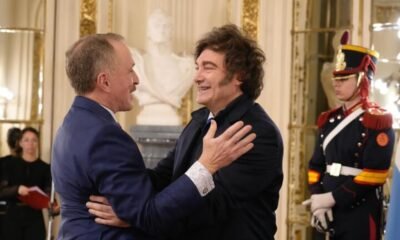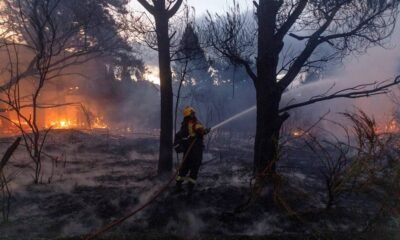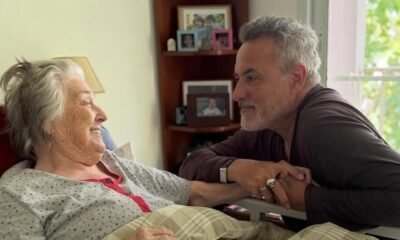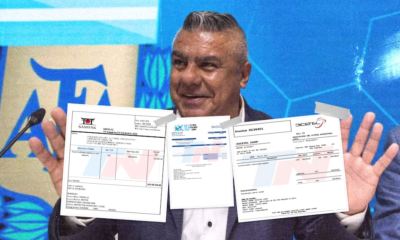INTERNACIONAL
Una curiosa forma de protesta en Turquía: la oposición desafió al gobierno de Recep Erdogan con un exitoso «día sin compras»
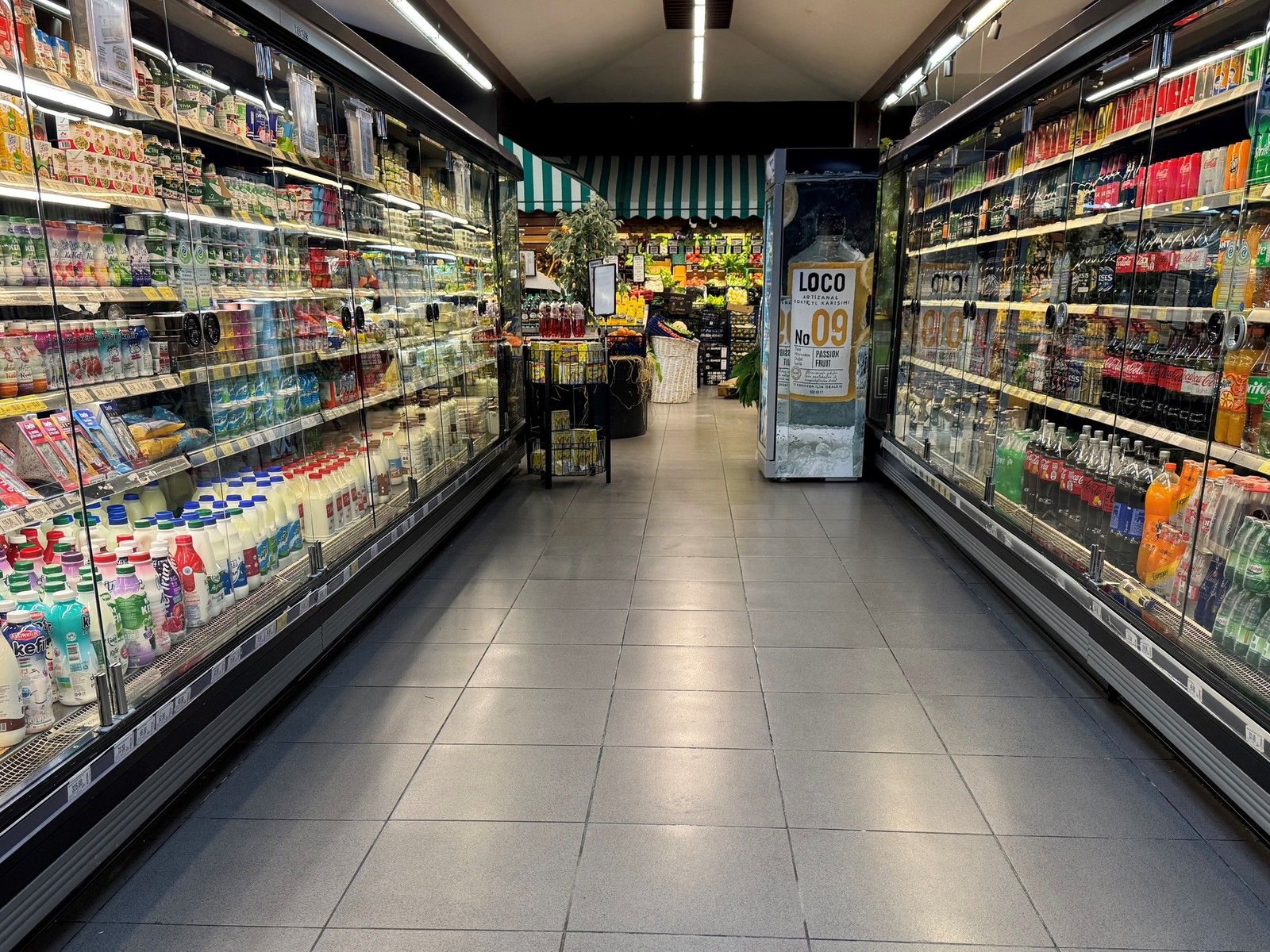
El día de «cero compras» convocado este miércoles por la oposición en Turquía como forma de protesta contra el Gobierno de Recep Tayyip Erdogan -tras el arresto del alcalde socialdemócrata de Estambul, Ekrem Imamoglu- tuvo un gran impacto, según relataron a EFE varios empresarios.
«El boicot parece tener bastante éxito, o esa es la impresión que recibimos de nuestras filiales. Quien viene a comprar hoy, en general solo compra artículos de primera necesidad, como pan», dijo a EFE el dueño de una cadena local de supermercados, que pidió el anonimato.
El gerente de otra cadena de supermercados, presente sobre todo en Ankara, estimó que hacia el mediodía, la afluencia de clientes era una cuarta parte de lo habitual.
«Solo compran pan y cosas básicas. Por lo que vemos en nuestras tiendas, el boicot tiene mucho éxito», dijo este empresario, que tampoco quiso ver publicado su nombre.
También el director de una cadena de gasolineras, que asimismo pidió anonimato, estimaba el volumen de clientes en la cuarta parte de lo habitual.
El boicot ha causado gran polarización en el discurso público, ya que para los movimientos de protesta, encabezados por el partido de Imamoglu, el socialdemócrata CHP, es una especie de pulso para mostrar su fuerza, mientras que desde el Gobierno se ha calificado de «sabotaje» a la economía y se ha tildado incluso de ilegal.
«Llamar al boicot de nuestros comerciantes, de nuestros productos locales y nacionales, es una traición al país y la nación», escribió en la red X el ministro del Interior, Ali Yerlikaya, junto a una foto que lo muestra haciendo la compra en un supermercado.
También el ministro del Comercio, Ömer Bolat, difundió una imagen suya haciendo la compra.
Durante las masivas protestas de marzo, el CHP, el mayor partido de la oposición, había pedido boicotear varias populares marcas propiedad de grandes conglomerados empresariales bien conectados con el Gobierno y a menudo dueños de prensa y cadenas de televisión que difunden únicamente el discurso oficial.
Pero en añadidura, los movimientos opositores compuestos en gran parte por estudiantes y jóvenes habían difundido en redes el 2 de abril como fecha de «cero compras» para mostrar el poder de la ciudadanía y como protesta por la carestía de vida general.
El diario opositor BirGün recuerda que el propio Erdogan había invitado aún en diciembre pasado a la ciudadanía a boicotear «productos y servicios de precios inflados» para así frenar la inflación, actualmente en un 39 % interanual.
Sin embargo, la Fiscalía de Estambul ha iniciado una investigación sobre llamamientos a sumarse al boicot al considerarlas delitos de odio y discriminación e incitación a la hostilidad.
La polémica entre defensores y detractores del boicot ha incendiado las redes y el director de la cadena pública TRT ha anunciado que expulsará de la popular telenovela Teskilat a la actriz Aybüke Pusat, por haber difundido en su red social el llamamiento al boicot.
El hastag #AybükePusat, usado por ambos bandos, se convirtió en tendencia, con más de 60.000 mensajes en la red X, y numerosas actrices turcas respaldaron a su colega frente al despido.
INTERNACIONAL
DHS at center of progressive revolt as House advances $80B spending package

NEWYou can now listen to Fox News articles!
The House of Representatives passed a roughly $80 billion spending package on Wednesday evening, taking a significant step toward averting a government shutdown at the end of this month.
The package combines two of Congress’ 12 annual appropriations bills in what’s called a «minibus.» It covers funding for the State Department and related national security, as well as federal financial services and general government operations.
Glaring questions still remain, however, over funding for the Department of Homeland Security (DHS) as progressives threaten to withhold support from any such bill unless it’s paired with significant reforms to Immigration and Customs Enforcement (ICE).
The push comes from the left in response to an ICE agent shooting 37-year-old Renee Nicole Good, a U.S. citizen who was driving her car when it made physical contact with a law enforcement official who then fatally shot her.
HOUSE PASSES NEARLY $180B FUNDING PACKAGE AFTER CONSERVATIVE REBELLION OVER MINNESOTA FRAUD FEARS
Rep. Ilhan Omar speaks at a press conference with other members of the Congressional Progressive Caucus on funding for and efforts to reform the Department of Homeland Security, in Washington, Jan. 13, 2026. (Nathan Posner/Anadolu via Getty Images)
Partisan divisions have erupted over the narrative, with GOP officials like DHS Secretary Kristi Noem saying the agent acted in self-defense, while Democrats on Capitol Hill have called for criminal investigations.
DHS funding was initially expected to be part of this minibus, but House Appropriations Committee Chairman Tom Cole, R-Okla., told reporters earlier this week that he would like to see the bill as part of the final package that’s also expected to include funding for the Department of War, Department of Transportation, Department of Labor, Education Department and Health and Human Services, among others.
But the top Democrat on the panel, Rep. Rosa DeLauro, D-Conn., told reporters on Tuesday that she wanted to see DHS funding as a separate bill.
«It’s got to be by itself,» DeLauro said. «It’s got to be separate.»
CONGRESS ROLLS OUT $174B SPENDING BILL AS JAN 30 SHUTDOWN FEARS GROW
Meanwhile, the Congressional Progressive Caucus is formally threatening to oppose any DHS funding that does not change immigration enforcement policy, Rep. Ilhan Omar, D-Minn., announced.
«Our caucus members will oppose all funding for immigration enforcement in any appropriation bills until meaningful reforms are enacted to end militarized policing practices. We cannot, and we should not continue to fund agencies that operate with impunity,» she told reporters.

House Speaker Mike Johnson in the Roosevelt Room of the White House in Washington, Dec. 2, 2025 (Yuri Gripas/CNP/Bloomberg via Getty Images)
But the bill that passed on Wednesday did so with wide bipartisan support, as expected.
All federal spending bills in the wake of last year’s government shutdown are a product of bipartisan discussions between the House and Senate.
SENATE RACES TO AVOID GOVERNMENT SHUTDOWN WITH TIME TICKING AND LINGERING ISSUES
The recent package totals just over $76 billion in federal funds, and is now headed to the Senate for its approval before getting to President Donald Trump’s desk.
The State Department and national security bill includes $850 million for an «America First Opportunity Fund,» aimed at giving the Secretary of State funding to respond to potential unforeseen circumstances.
Both Republicans and Democrats touted different victories in the legislation, with a summary by House Appropriations Committee Republicans stating that the bill supports «President Trump’s America First foreign policy by eliminating wasteful spending on DEI or woke programming, climate change mandates, and divisive gender ideologies.»
Democrats said the bill «supports women globally» by «protecting funding for bilateral family planning and the United Nations Population Fund (UNFPA)» and pointed to $6.8 billion for a new account «that supports the activities previously funded under Development Assistance.»
The bill also provides millions in security assistance for Israel and Taiwan, among other global partners across the world.
The latter bill provides just over $13 billion for the U.S. Treasury for the remainder of fiscal year 2026, while also including a provision that stops the IRS «from targeting individuals or groups for exercising their First Amendment rights or ideological beliefs,» according to Republicans.
It also provides $872 million for the Executive Office of the President and $9.69 billion in discretionary funding for the Federal Judiciary.
CLICK HERE TO DOWNLOAD THE FOX NEWS APP
Meanwhile, across the Capitol, the Senate is expected to vote on and pass the previous three-bill funding package on Thursday before leaving Washington, D.C., for a weeklong recess.
Neither side appears willing to thrust the government into another shutdown, with Senate Democrats in particular viewing the package as an opportunity to fund several of their priorities. But, there is a growing consensus that a short-term funding patch will be needed to allow lawmakers to finish work on the thornier DHS bill.
«Homeland is obviously the hardest one, and it’s possible that, if we can’t get agreement, that there could be some sort of CR that funds some of these bills into next year,» Senate Majority Leader John Thune, R-S.D., said.
Still, bipartisan funding talks are still happening — a stark departure from the last government funding deadline in October. But lawmakers in the upper chamber won’t be able to tackle the two-bill package until they return toward the end of the month.
house of representatives politics,budget house of representatives politics,homeland security,politics
INTERNACIONAL
France condemns Iran protest crackdown, weighs satellite internet aid amid blackout

NEWYou can now listen to Fox News articles!
EXCLUSIVE: France’s ambassador to the United Nations said Paris has strongly condemned Iran’s violent crackdown on nationwide protests, as the French government weighs possible satellite communications support to help Iranians circumvent a near-total internet blackout.
In an exclusive interview with Fox News Digital, Jerome Bonnafont described what he said was an escalation in repression by Iranian authorities and outlined France’s response, including sanctions and diplomatic pressure.
«We have condemned very, very strongly, at the highest level, the repression against the popular movement in Iran,» Bonnafont said. «This time it seems to me that the repression is even more violent than it used to be.»
IRANIAN DISSIDENT UNLOADS ON AMERICAN LEFT’S SILENCE ON DEADLY PROTESTS
Ambassador Jérôme Bonnafont, left, and French President Emmanuel Macron arrive for a summit at U.N. headquarters in New York on Sept. 22, 2025. (Ludovic MARIN/AFP via Getty Images)
His remarks come as France’s foreign minister confirmed Paris is studying the possible transfer of satellite terminals operated by Eutelsat to Iran, following a sweeping internet shutdown imposed by Iranian authorities during the unrest, and as the G7 issued a joint statement condemning Iran’s violent crackdown on nationwide protests.
The foreign ministers of France, the United States and other G7 nations warned they were prepared to impose additional restrictive measures if Iran continues to violate international human rights obligations.

Iranians attend an anti-government protest in Tehran, Iran, on Jan. 9, 2026. (UGC via AP)
Earlier Tuesday, Israel’s foreign minister, Gideon Saar, urged France to support designating Iran’s Islamic Revolutionary Guard Corps as a terrorist organization at the EU level during a call with French Foreign Minister Jean-Noel Barrot.
Asked whether France would back such a move, Bonnafont did not address the IRGC designation directly, instead emphasizing existing sanctions and international pressure.
«There are sanctions against the police of the regime. And there are sanctions also against several individuals, more than 200 people in Iran for these reasons,» he said.
«What we have to do is to condemn and to address the right message to the people in Iran and to the regime, so that the regime stops with this massive repression.»
IRAN’S KHAMENEI ISSUES DIRECT WARNING TO UNITED STATES IN RUSSIAN-LANGUAGE POSTS
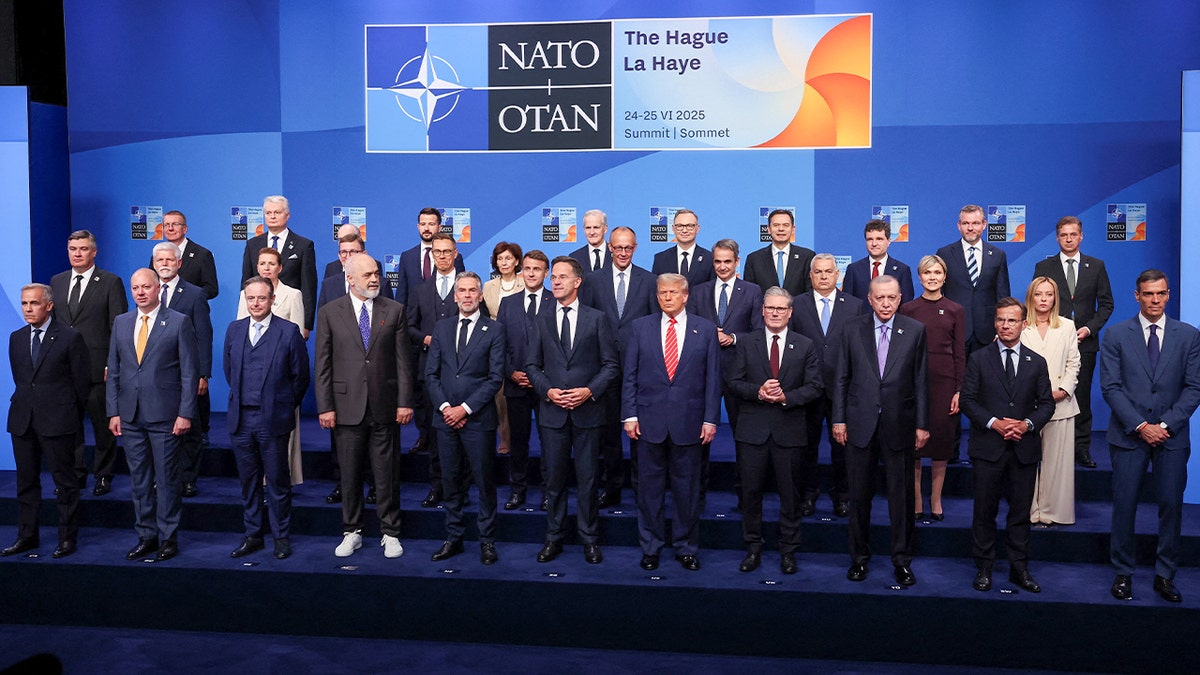
NATO leaders pose in this shot taken in June. (Claudia Greco/Reuters)
NATO and Europe’s defense responsibility
Bonnafont also addressed repeated calls from President Donald Trump for European allies to shoulder more of NATO’s defense burden, arguing that Europe is already moving in that direction.
«There is a will by the Europeans to take the full responsibility of the protection of its own continent,» he said.
He stressed that the approach reflects a long-standing French position. «It is a very old theme for the French governments that there has to be within NATO an autonomous, self-capable entity for European defense,» Bonnafont said, referring to France’s long-standing advocacy for European strategic autonomy, a position repeatedly emphasized by President Emmanuel Macron.
TRUMP ISSUES STERN WARNING TO NATO AHEAD OF VANCE’S HIGH-STAKES GREENLAND MEETING
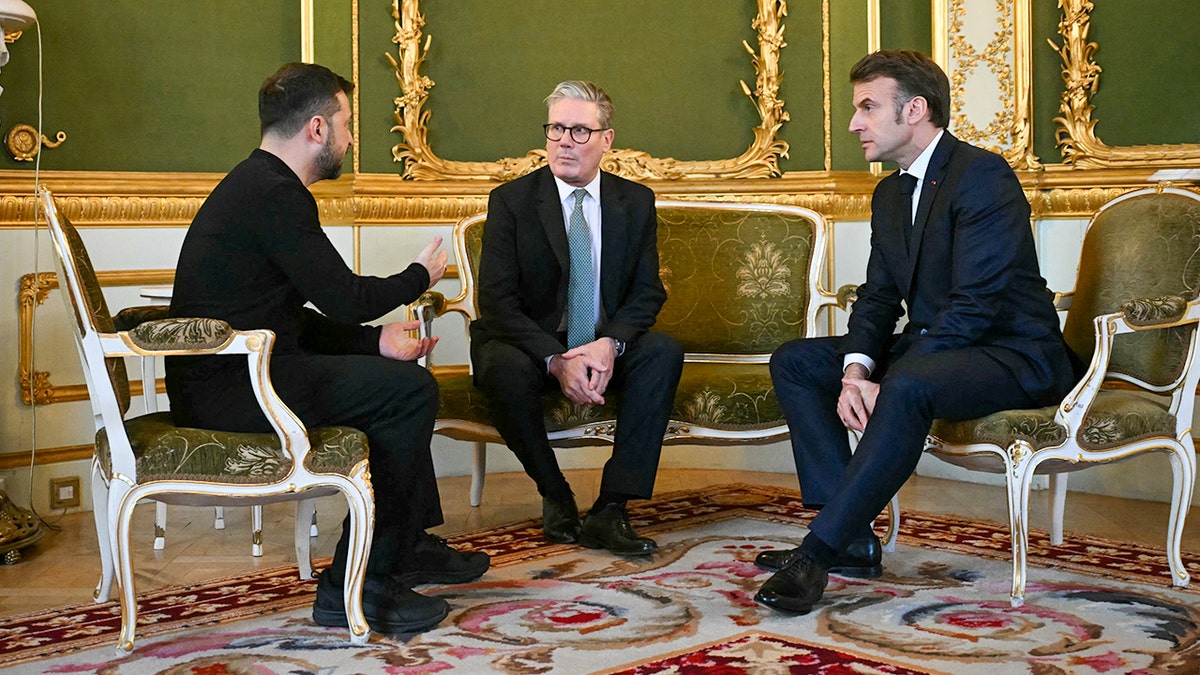
Ukraine’s President Volodymyr Zelenskiy, Britain’s Prime Minister Keir Starmer and France’s President Emmanuel Macron meet at Lancaster House in London, March 2, 2025. (Justin Tallis/Pool via Reuters)
Ukraine as a test case
Bonnafont pointed to Europe’s response to Russia’s war in Ukraine as evidence that European governments are prepared to act collectively when core security interests are threatened.
«Ukraine has been attacked by Russia four years ago. Now it has been invaded by Russia, and it has decided to resist and to fight for its independence, its territorial integrity, its sovereignty,» he said.
He described European backing for Kyiv as both unified and extensive. «And Europeans are going in support of Ukraine. And what we are doing in terms of financial support is massive. What we are doing in terms of political support is unanimous,» Bonnafont said.
According to the ambassador, France and the United Kingdom are working to organize what he described as a «coalition of volunteers» to provide Ukraine with long-term security guarantees once negotiations with Russia become possible.
«When Ukraine enters into discussion with Russia, and when Russia accepts to enter into discussion with Ukraine, and when the elements of a peace, sustainable peace, are put on paper, Ukraine can have security guarantees,» he said.
Bonnafont also pointed to France’s domestic budget decisions as evidence that Europe is backing rhetoric with resources. «There is presently the negotiation of the next budget for France for 2026,» he said. «It includes a strong increase in our defense budget, and it is the only budget that is going to be increased in our whole budget this year.»
TRUMP ADMIN EXIT FROM UN, INTERNATIONAL ORGANIZATIONS RAISES QUESTION OF WHO’S NEXT
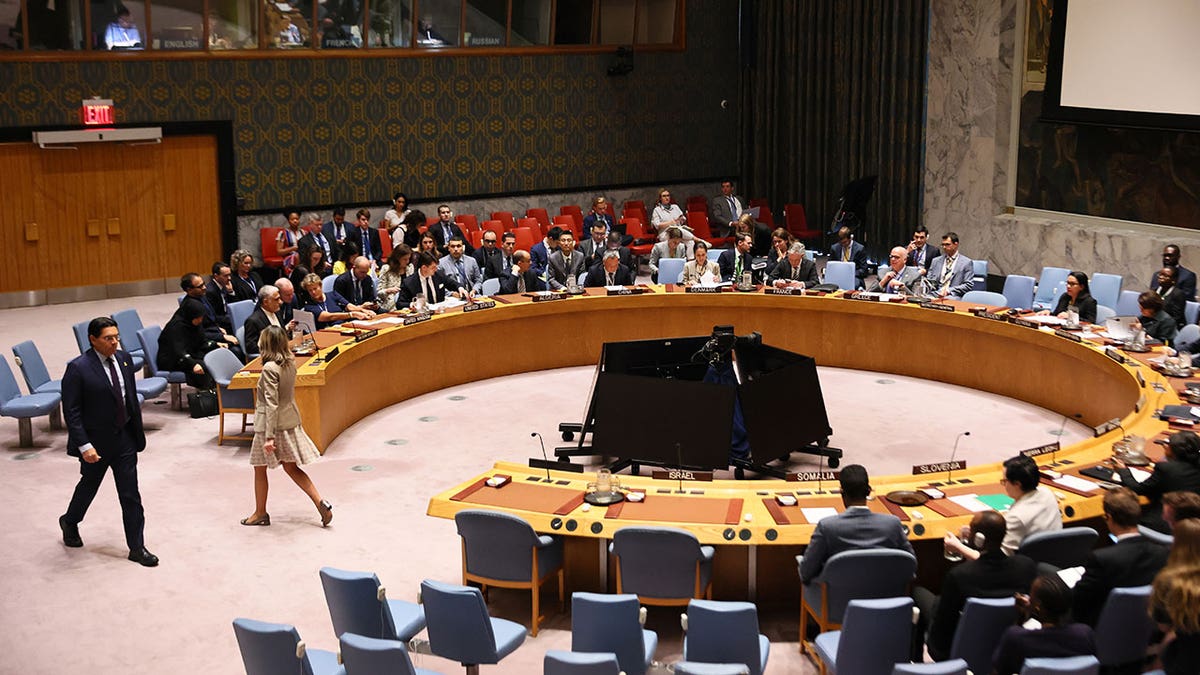
The Security Council meets at United Nations headquarters on June 13, 2025, in New York City. (Michael M. Santiago/Getty Images)
UN reform and budget cuts
Beyond NATO and Europe’s defense posture, Bonnafont said France is pushing for institutional reform at the United Nations, where member states recently approved significant budget reductions. «The institution has to reform. It always has to reform,» he said.
«We decided by consensus with the American government and all the others a budget which presents a reduction of 20% of manpower and a reduction of 15% of the funds allocated to the U.N.,» Bonnafont added. «Give me another example of a public structure that is capable of such an effort in such a short time,» he said.
Despite the cuts, he defended the U.N.’s relevance. «Yes, we are serious about reform. Yes, we want it to be streamlined,» Bonnafont said. «But yes, we need the U.N. for the world.»
CLICK HERE TO DOWNLOAD THE FOX NEWS APP
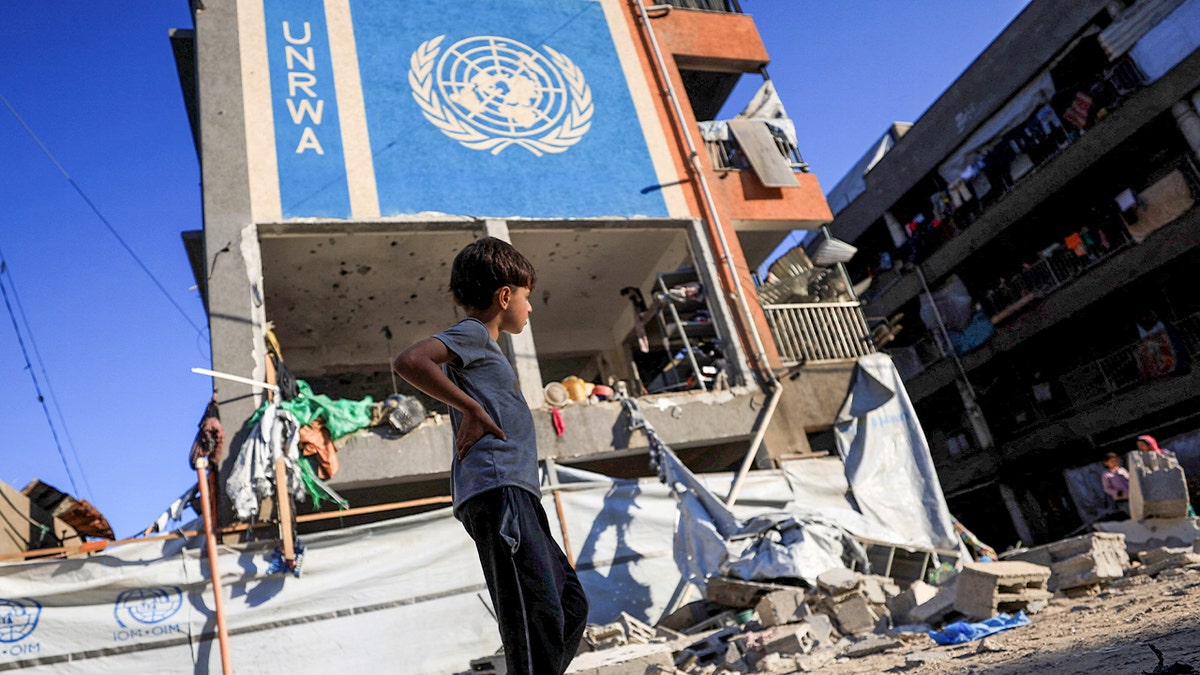
A Palestinian boy walks near an UNRWA school sheltering displaced people that was hit in an Israeli strike, in Gaza City, July 5, 2025. (Dawoud Abu Alkas/Reuters)
UNRWA dispute and U.S. funding cuts
Asked about the U.S. decision to halt funding for several U.N. agencies, including UNRWA, Bonnafont defended the agencies, saying, «Organizations are more efficient when they are universal,» adding that participation remains a sovereign decision for the United States.
iran,france,nato,united nations,foreign policy,ukraine,europe,donald trump
INTERNACIONAL
Máxima tensión en Irán: Trump mantiene la opción militar y Teherán presiona a los países del Golfo

La grave crisis de Irán está a un paso de cruzar una línea sin retorno en una región que amenaza con convertirse otra vez en un foco de guerra marcado por intereses geopolíticos.
Con más de 3400 muertos, riesgo de ejecuciones sumarias y más de 10.000 detenidos, el presidente estadounidense, Donald Trump, tiene sobre la mesa una nueva opción militar, aunque en las últimas horas matizó sus amenazas y afirmó que las matanzas en Irán “han cesado”.
Leé también: Tensión en Irán: una multitud despide a los miembros de las fuerzas de seguridad que murieron en las protestas
Entre la evacuación del personal no esencial de las bases estadounidenses en el área, la sensación que predominaba en la región era de un ataque inminente. “Siente que necesita hacer algo”, resumió una persona del entorno presidencial norteamericano citada este miércoles de forma anónima por la CNN.
Desde Europa, están convencidos de que la Casa Blanca ya se inclinó por la opción militar, aunque el cese de la represión señalado por Trump podría detener esos planes. Poco antes, un funcionario europeo, citado por Reuters, había alertado que un ataque podría concretarse en las próximas 24 horas. También una fuente israelí señaló que el mandatario republicano “parecía haber tomado la decisión de intervenir”.
Solo faltaría determinar el alcance y el momento de esa eventual ofensiva.
¿Una nueva Venezuela?
El gobierno teocrático iraní fue sacudido por las más extendidas protestas antigubernamentales desde el triunfo de la revolución islámica de 1979.
El analista Said Chaya, miembro del Comité Medio Oriente del Consejo Argentino para las Relaciones Internacionales (CARI), dijo que “todo parece indicar que va a haber una serie de ataques”.
“Irán ha ido a buscar a los países del Golfo y Turquía para que hagan la gestión con Trump y eviten un ataque. La promesa fue: ´si ustedes no logran detener la ofensiva vamos a atacar objetivos de Estados Unidos dentro de sus respectivos países’“, afirmó Chaya, director de las carreras de Ciencia Política y Relaciones Internacionales de la Universidad Austral. En la imagen, tomada de un video que circula en redes sociales, manifestantes bailan y aclaman alrededor de una fogata tras salir a las calles a pesar de una intensificación en las medidas represivas en Teherán el 9 de enero de 2026. (UGC vía AP, Archivo)
“Esto es una posibilidad. Esperamos que se puedan contener las intenciones de Estados Unidos, que entienda que Irán no es Venezuela y la región es mucho más volátil. Es una región mucho más inestable que América Latina y ahí reside el problema”, alertó el analista.
Las alternativas que maneja Trump en Irán
Trump tiene entre sus opciones bombardear Irán, como ocurrió en junio pasado cuando atacó plantas nucleares durante la guerra de 12 días entre Israel e Irán. Pero descarta de plano cualquier presencia militar en el terreno. No quiere una guerra prolongada.
Según la CNN, una opción es atacar instalaciones relacionadas con los servicios de seguridad responsables de la represión de las masivas protestas que sacuden el país.
Pero el riesgo es grande. Por un lado, expertos en Washington temen que un colapso del gobierno teocrático desestabilice aún más la región. Las experiencias sobre la desintegración política en Irak, Siria y Libia, entre otros países, no pueden ignorarse con facilidad. Pero además existe un peligro latente de una contraofensiva iraní a gran escala.
Leé también: Venezuela reinició las clases, pero hay gran ausentismo y temor por un discurso oficial de “adoctrinamiento”
El gobierno de los ayatolá, encabezado por el líder supremo Ali Jamenei, advirtió que, en caso de un ataque, Teherán tomará como blanco todo objetivo estadounidense e israelí en la región. Sus vecinos del Golfo, que albergan varias bases norteamericanas, lo saben. Ya en junio pasado Irán bombardeó una base de EE.UU. en Qatar, aunque bajo aviso para evitar grandes daños.
Pero también hay temor de un resurgimiento de los “grupos proxy” iraníes, diezmados por la guerra de Gaza y en el Líbano.
El mundo diplomático le exigió al Hezbollah libanés, aliado de Teherán y cuyo poder de fuego quedó reducido por casi dos años de enfrentamiento con Israel, que garantice su no intervención en un hipotético nuevo conflicto. Pero voceros del grupo armado islámico dijeron que solo se abstendrían si no está en juego la existencia del estado de Irán, es decir, la revolución islámica.
En tanto, reportes de inteligencia norteamericana, citados por la prensa local, alertaron que Irán está lista para atacar bases estadounidenses en Medio Oriente, incluidas las de Irak y Siria. Estados Unidos tiene desplegadas fuerzas en toda el área. De hecho, mantiene el cuartel general de su mando central en Al Udeid (Qatar) y la sede de la Quinta Flota de la Armada en Bahréin.
Desde Teherán apuestan a controlar la situación. “Tras tres días de operación terrorista, ahora hay calma. Tenemos el control total”, dijo el canciller iraní Abbas Araghchi a Fox News.
“Nos han dicho que las matanzas en Irán están cesando. Han cesado y no hay planes para ejecuciones”, dijo Trump este miércoles en un acto en el Despacho Oval. La pregunta es si eso será suficiente para cambiar los planes de la Casa Blanca.
Irán, Donald Trump

 CHIMENTOS2 días ago
CHIMENTOS2 días agoLa triste despedida de Jorge “Corcho” Rodríguez a Pía, su asistente por 30 años: “Gracias por tu amor”

 POLITICA2 días ago
POLITICA2 días agoLa AFA giró US$8 millones a cinco empresas en Miami que ya no existen: un argentino disolvió hace seis días una firma clave

 POLITICA2 días ago
POLITICA2 días agoIncendios en Chubut: el fiscal general aseguró que el responsable podría recibir hasta 20 años de prisión





